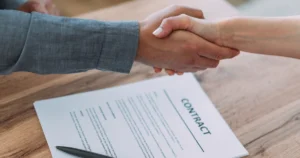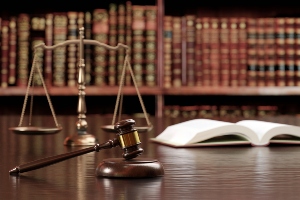 Some injury victims are surprised when they get a settlement check for less than they thought they were getting. This is often because liens that were placed on the settlement were paid off before the check was sent out.
Some injury victims are surprised when they get a settlement check for less than they thought they were getting. This is often because liens that were placed on the settlement were paid off before the check was sent out.
This is an issue you should discuss with your attorney when you file a claim and before the settlement is finalized. Sometimes, your attorney may be able to help you negotiate and reduce the amount of money that gets taken from your settlement to cover liens from creditors.
The South Bend personal injury lawyers are here to answer your questions about your claim in a free consultation. Give us a call to learn more.
What is a Lien?
A lien is a third-party’s legal claim to all or some of your judgement or settlement money. Usually, this person or entity, called a lienholder, gets paid before you see any of the compensation owed to you for your damages.
Generally, a lien is attached to the compensation you are awarded, either by a jury verdict or settlement agreement, when the party looking to collect what is owed files the necessary paperwork and serves you with a notice to collect.
After the validity of a lien is established, the lienholder(s) gets the first payments, and you receive the compensation that is left.
Who Can Place a Lien on my Personal Injury Compensation?
There are various entities, both private and public, as well as individuals who may be able to place a lien on your personal injury judgement or settlement.
Government Agencies
Medicare, Medicaid and the Veterans Administration sometimes place liens on personal injury settlements. If you owe back taxes to the Internal Revenue Service (IRS), you should also expect a lien on your settlement.
Government liens usually take precedence over others when the settlement proceeds are distributed.
Insurance Companies
Private health insurers are common lienholders on personal injury claims. This is because injury victims may not be able to front the cost of their medical treatment at a hospital or doctor’s office before they receive money from a settlement.
Child and Spousal Support
If you are behind on child support payments or in the process of a divorce, a lien may be filed against any judgement or settlement you receive from a personal injury claim.
Creditors
Any outstanding debts, such as credit card debt or bank loans could reduce the amount of money you receive in a settlement. Creditors may have the legal authority to pursue payment by filing a lien against any monetary compensation you may be awarded.
Can I Appeal the Validity of a Lien?
You may be able to contest any liens you believe to be unfair or invalid. It is then up to a judge to decide if the lien is valid. For example, a lien from a creditor concerning debts that have already been paid or are not behind should not be considered valid.
However, if you genuinely owe the money, the court will uphold the lien. It would be in your best interest to speak to an attorney about the liens on your settlement in case there are any errors or if a lien is not actually valid.
How Can I Protect my Settlement?
If your injuries are severe enough that you require surgery or extensive medical treatment, your attorney may be able to work with your medical care providers on a reduced bill.
If you have multiple lienholders, such as creditors hoping to collect past due debts, it would be in your best interest to either pay the debts off entirely or negotiate a repayment plan.
Call Us Today for Legal Assistance
At Pfeifer, Morgan & Stesiak, we offer a free consultation and there are no upfront fees for our services. That means no risk in contacting us after an accident to see if we can help you.
We have helped many injury victims recover compensation, securing millions in settlements and verdicts.
Call today to schedule a free case review: (574) 444-0741












